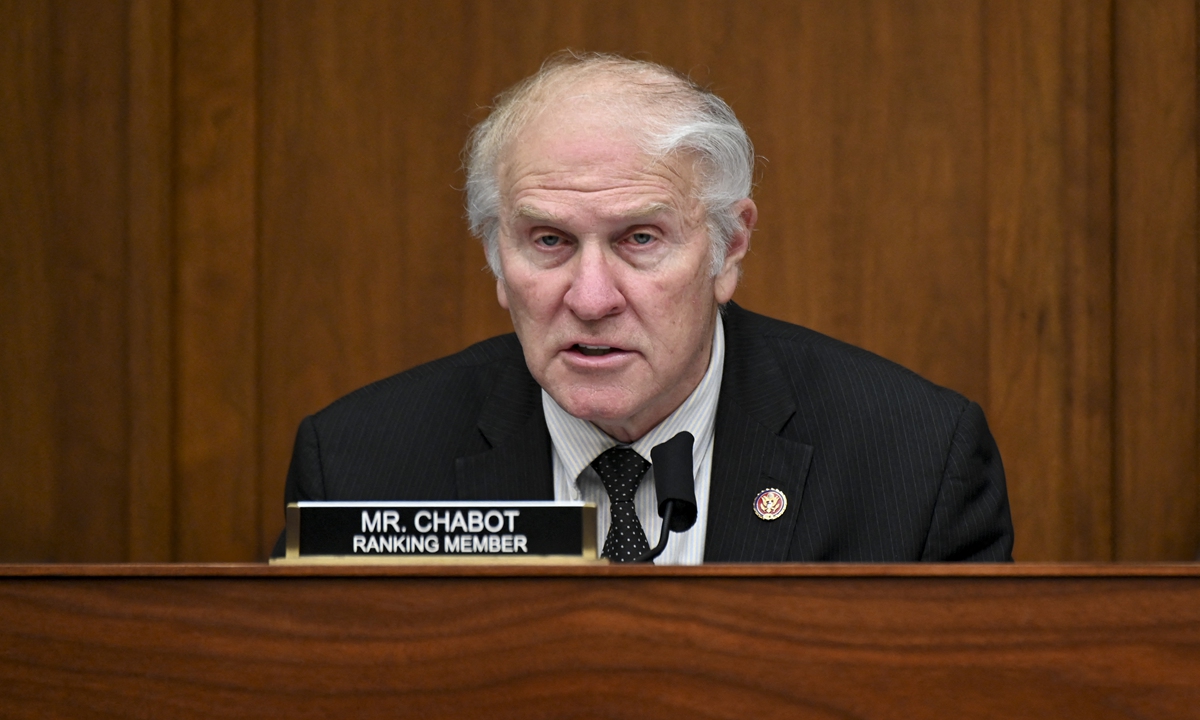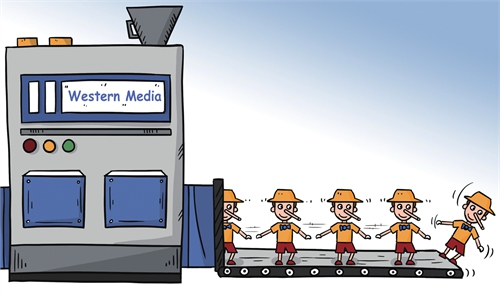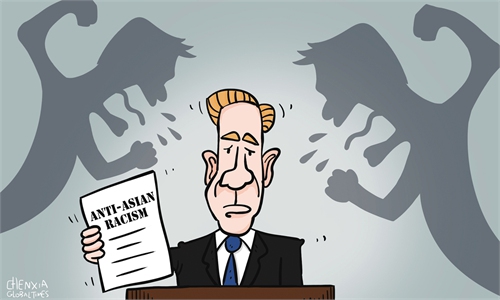
WASHINGTON, DC - JULY 17: Representative Steve Chabot, (R-OH) and ranking member of the House Small Business Committee, speaks as Steven Mnuchin, U.S. Treasury secretary, left, listens during a House Small Business Committee hearing on July 17, 2020 in Washington, D.C. Erin Scott-Pool/Getty Images/AFP POOL / GETTY IMAGES NORTH AMERICA / Getty Images via AFP
Some anti-China US lawmakers have released statements to celebrate Double Ten Day, in an attempt to embolden Taiwan secessionist forces. People with insight on Taiwan should be aware that Taiwan is just a pawn used by these anti-China politicians for their political gain. Apart from lip service, they cannot provide any benefits to the island.US Senator Marco Rubio is an example. Aside from celebrating the so-called national day of the island, he said, "We [the US] look forward to further strengthening our relationship in the years and decades to come." The statement also condemned "Beijing's incursion into Taiwanese airspace." On Friday, Representatives Gregory W. Meeks, Michael McCaul, Ami Bera and Steve Chabot issued a statement, conveying a similar message.
These lawmakers are blatantly provoking the one-China principle and playing with fire on issues involving China's core interests. Taiwan is part of China. Where does the so-called Taiwan National Day come from?
It is not surprising to see them make such remarks. These lawmakers are steadfast anti-China politicians. Chabot, in particular, has repeatedly interfered with the Taiwan question in the past two decades as a congressman. When interviewed by the Central News Agency, a Taiwan-based media outlet, Chabot even said he would not be satisfied until Taiwan's regional leader Tsai Ing-wen addresses a joint session of the House and the Senate in the Capitol. A netizen of the island replied to the post indicating that by saying so, Taiwan secessionist authorities will contribute more to his election campaign.
"Quite a few US politicians who are anti-China and support Taiwan secessionist forces have received funds to support their election. October 10 provides an opportunity for them to put on a political show. They took the opportunity to show their consistent support for the island and hardline toward the Chinese mainland. In return, they hope Taiwan authorities would provide more funds to help their reelection," Xin Qiang, deputy director of the Center for American Studies at Fudan University, told the Global Times.
Furthermore, earlier this month during China's National Day holiday, the Chinese People's Liberation Army (PLA) broke its previous record of drills near the island of Taiwan, which has triggered global attention, especially the US. A statement issued by the US State Department on October 3 accused the PLA of carrying out "provocative military activities" that "undermine regional peace and stability." These lawmakers' echoing of such criticism in their statements is an attempt to expand their political influence. Under current political atmosphere in Washington, these lawmakers are eager to label themselves as anti-China pioneers, in a bid to gain more political assets.
It should be noted that what the PLA entered is the island's self-proclaimed southwest air defense identification zone (ADIZ), but Rubio described it as "Taiwanese airspace," and "airspace near Taiwan" for the statement of the four representatives. They deliberately confused the concept. Airspace has sovereign meaning, and only sovereign countries have airspace. Describing it as "Taiwanese airspace" is equivalent to recognizing Taiwan as a sovereign country. Xin said these lawmakers are deliberately confusing concepts in order to smearing the Chinese mainland, making it okay to say that the Chinese mainland bullies Taiwan and jeopardizes regional stability.
Tsai's address on Sunday embodies her "Taiwan secession" mindset. And the statements of these lawmakers may inspire Tsai as well as her DPP authorities, which is not good news for Taiwan. If they push the DPP authorities to move further on the path to pursue "Taiwan secession," it will throw Taiwan as well as cross-Straits relations into a miserable situation.



